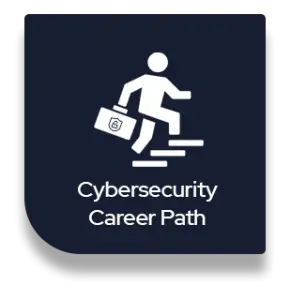As computer crimes continue to escalate in scale and complexity, organizations hire record numbers of trained and certified IT security specialists to combat hackers, malicious attacks, and security threats. EC-Council certifications prove your real-world skills and qualifications in today’s most demanded computer security domains, including ethical hacking, computer forensics, network security, and penetration testing, helping to move you to the top of the list for a wide range of private and public sector positions in information security.
EC-Council credentials are used by various government organizations – including the National Security Agency and the Department of Defense – to clear government personnel and contractors for privileged access to sensitive data and recognized worldwide as a trusted indicator of advanced skills and qualifications in the IT security field.
EC-Council Certification Salaries
Average salaries for EC-Council certified professionals:
CHFI: Computer Hacking Forensic Investigator salary: $88,000
CEH: Certified Ethical Hacker Salary: $90,000
ENSA: Network Security Administrator salary: $92,000
ECSA: Certified Security Analyst salary: $92,000
The career path of a security expert inevitably includes training and certifications. For those who have conquered the foundational security certifications, you may be wondering what’s next. First, you should consider EC-Council certifications.
EC-Council’s mission is to “create a better, safer world through awareness and education.” They create courseware and certification in a variety of security topics, including the world-famous Certified Ethical Hacker (CEH), Computer Hacking Forensics Investigator (CHFI), EC-Council Certified Security Analyst (ECSA), and Licensed Penetration Tester (LPT) programs. With all of these certification choices, where should you begin? This quick reference guide will highlight the various certification tracks to help you find your path through the EC-Council programs.
Certification Paths
EC-Council breaks their certification programs up into paths, each one focusing on a different element of cybersecurity. The paths are:
Vulnerability Assessment and Penetration Testing
Cyber Forensics
Governance
Your next certification should be based on the kind of job you have or what you want.
Vulnerability Assessment and Penetration Testing
This path is one of the most well-known. The certifications in this path focus on the defensive and offensive sides of security testing.
Core
CEH is designed for security experts to learn the hacking techniques of real threat actors to better prepare for the threats and identify the vulnerabilities before they are exploited. Essentially, this is an offensive security certification. Once you achieve the CEH certification, you can pursue the title of CEH Master by completing a practical evaluation that tests your skills in real-world situations.
Advanced
ECSA is a continuation of CEH and presents various kill chain methodologies covering various pentesting requirements. The purpose is to help you take the tools and techniques learned in CEH and enhance them into skillful exploitation following EC-Council’s published pentesting methodology. Like CEH, ECSA has a practical exam as well to test your penetration testing skills. But, again, the purpose is to demonstrate the application of your skills, going beyond theory to the real world.
Cyber Forensics
The Cyber Forensics track is designed to train and certify professionals to investigate cyberattacks and collect evidence securely, oftentimes to present in a court of law to prosecute a cyber-criminal. This track starts with Core certification CEH; see above.
Advanced
ECIH – expects a strong understanding of the nine stages of incident handling to minimize the impacts and loss following security incidents in the enterprise.
CHFI – Computer Hacking Forensic Investigator
Whether your goal is to work for law enforcement or to help an organization with internal investigations and audits, CHFI will prove your knowledge of the forensic process, including evidence gathering, data recovery, and analysis.
Governance
The governance track is focused on security leadership through the CCISO-Certified Chief Information Security Officer. This certification is broken into five domains: Governance; Security Risk Management, Control, and Audit Management; Security Program Management and Operations; Information Security Core Competencies; and Strategic Planning, Finance, and Vendor Management. This certification aims to give the security executive all of the skills necessary to strategically lead the security efforts of the organization and ensure that those security efforts stay in line with the overall business strategies and objectives.



